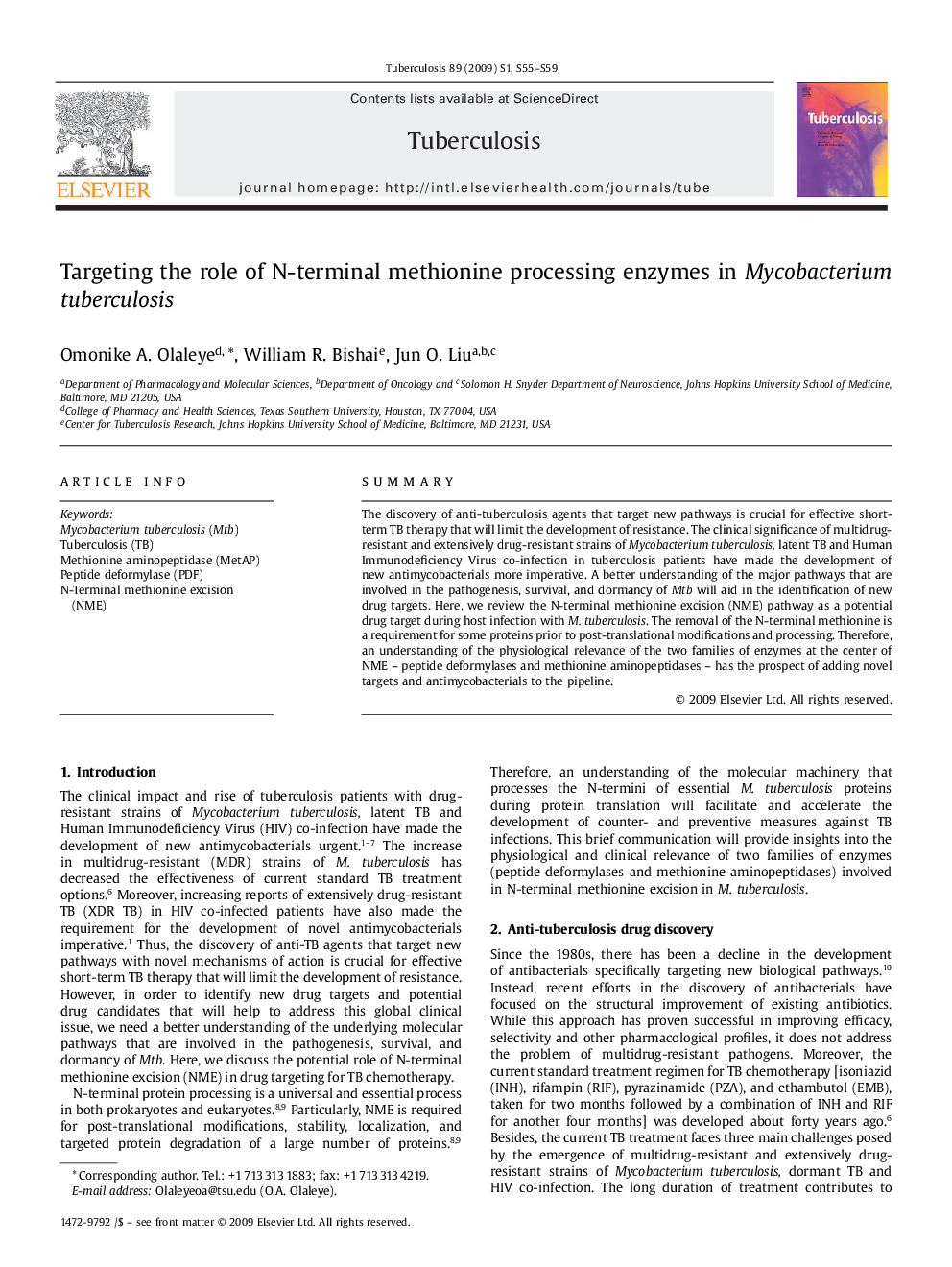| Article ID | Journal | Published Year | Pages | File Type |
|---|---|---|---|---|
| 2401821 | Tuberculosis | 2009 | 5 Pages |
SummaryThe discovery of anti-tuberculosis agents that target new pathways is crucial for effective short-term TB therapy that will limit the development of resistance. The clinical significance of multidrug-resistant and extensively drug-resistant strains of Mycobacterium tuberculosis, latent TB and Human Immunodeficiency Virus co-infection in tuberculosis patients have made the development of new antimycobacterials more imperative. A better understanding of the major pathways that are involved in the pathogenesis, survival, and dormancy of Mtb will aid in the identification of new drug targets. Here, we review the N-terminal methionine excision (NME) pathway as a potential drug target during host infection with M. tuberculosis. The removal of the N-terminal methionine is a requirement for some proteins prior to post-translational modifications and processing. Therefore, an understanding of the physiological relevance of the two families of enzymes at the center of NME – peptide deformylases and methionine aminopeptidases – has the prospect of adding novel targets and antimycobacterials to the pipeline.
